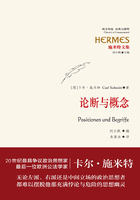'It is ready, mistress,' whispered a queer little voice which made her jump, and, looking behind her, she saw a lovely palace made of the finest woods, and a row of slaves with tall fans bowing before the door. Glad indeed was she to enter, for she was very tired, and, after eating a good supper of fruit and milk which she found in one of the rooms, she flung herself down on a pile of cushions and went to sleep with her baby beside her.
Here she stayed quietly, and every day the baby grew taller and stronger, and very soon he could run about and even talk. Of course the neighbours had a great deal to say about the house which had been built so quickly--so very quickly--on the outskirts of the town, and invented all kinds of stories about the rich lady who lived in it. And by and bye, when the king returned with his son from the wars, some of these tales reached his ears.
'It is really very odd about that house under the palms,' he said to the queen; 'I must find out something of the lady whom no one ever sees. I daresay it is not a lady at all, but a gang of conspirators who want to get possession of my throne. To-morrow Ishall take my son and my chief ministers and insist on getting inside.'
Soon after sunrise next day the prince's wife was standing on a little hill behind the house, when she saw a cloud of dust coming through the town. A moment afterwards she heard faintly the roll of the drums that announced the king's presence, and saw a crowd of people approaching the grove of palms. Her heart beat fast.
Could her husband be among them? In any case they must not discover her there; so just bidding the ring prepare some food for them, she ran inside, and bound a veil of golden gauze round her head and face. Then, taking the child's hand, she went to the door and waited.
In a few minutes the whole procession came up, and she stepped forward and begged them to come in and rest.
'Willingly,' answered the king; 'go first, and we will follow you.'
They followed her into a long dark room, in which was a table covered with gold cups and baskets filled with dates and cocoa-nuts and all kinds of ripe yellow fruits, and the king and the prince sat upon cushions and were served by slaves, while the ministers, among whom she recognised her own brother, stood behind.
'Ah, I owe all my misery to him,' she said to herself. 'From the first he has hated me,' but outwardly she showed nothing. And when the king asked her what news there was in the town she only answered:
'You have ridden far; eat first, and drink, for you must be hungry and thirsty, and then I will tell you my news.'
'You speak sense,' answered the king, and silence prevailed for some time longer. Then he said:
'Now, lady, I have finished, and am refreshed, therefore tell me, I pray you, who you are, and whence you come? But, first, be seated.'
She bowed her head and sat down on a big scarlet cushion, drawing her little boy, who was asleep in a corner, on to her knee, and began to tell the story of her life. As her brother listened, he would fain have left the house and hidden himself in the forest, but it was his duty to wave the fan of peacock's feathers over the king's head to keep off the flies, and he knew he would be seized by the royal guards if he tried to desert his post. He must stay where he was, there was no help for it, and luckily for him the king was too much interested in the tale to notice that the fan had ceased moving, and that flies were dancing right on the top of his thick curly hair.
The story went on, but the story-teller never once looked at the prince, even through her veil, though he on his side never moved his eyes from her. When she reached the part where she had sat weeping in the tree, the king's son could restrain himself no longer.
'It is my wife,' he cried, springing to where she sat with the sleeping child in her lap. 'They have lied to me, and you are not dead after all, nor the boy either.! But what has happened? Why did they lie to me? and why did you leave my house where you were safe?' And he turned and looked fiercely at his father.
'Let me finish my tale first, and then you will know,' answered she, throwing back her veil, and she told how her brother had come to the palace and accused her of being a witch, and had tried to persuade the king to slay her. 'But he would not do that,' she continued softly, 'and after all, if I had stayed on in your house, I should never have met the snake, nor have got my hand back again. So let us forget all about it, and be happy once more, for see! our son is growing quite a big boy.'
'And what shall be done to your brother?' asked the king, who was glad to think that someone had acted in this matter worse than himself.
'Put him out of the town,' answered she.
From 'Swaheli Tales,' by E. Steere.















